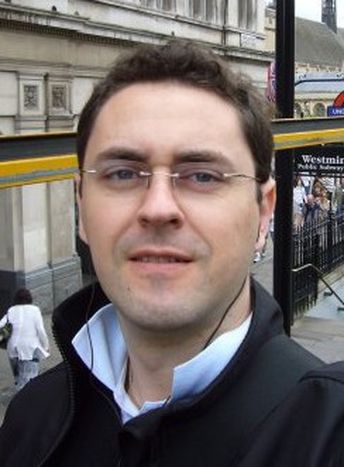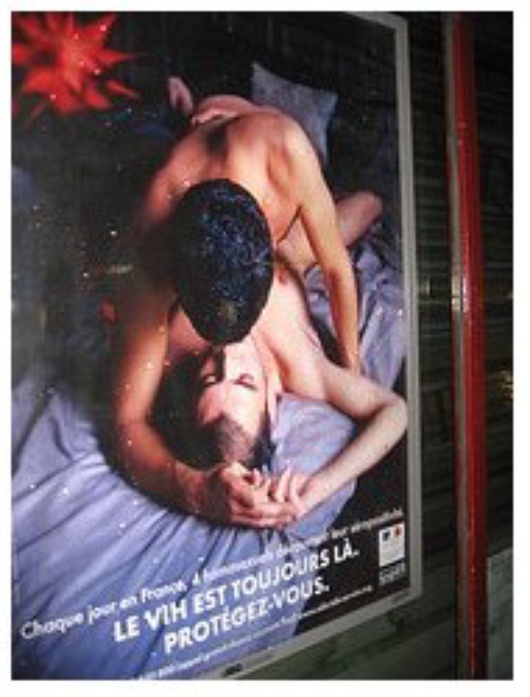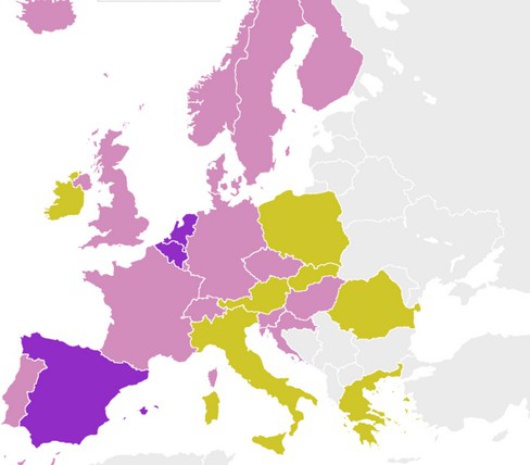
Paris: city of (hetero) love
Published on
Translation by:
Nabeelah ShabbirAfter European capitals London, Berlin and Amsterdam, Paris has the fourth biggest gay community. 700, 000 people participated in its 2007 gay parade. But life for gays and lesbians in the French capital is not exactly as rosy as the colour pink
29 years after Belgium (1762), France became the second European country to decriminalise homosexuality in 1791, followed by Luxembourg four years later. More recently in 1999, the French legalised civil unions between any couple (be it of the same or opposite gender), with a 'civil pact of solidarity' (PACS). Gay discrimination itself has been illegal since 2001. According to a survey the Pew Global Attitudes Project in 2002, 77% of French people accept homosexuality. The European commission-funded Eurobarometer of 2006 showed that 48% of French people are in favour of legalising gay marriages, whilst 35% agree with gay couples having the right to adopt children.
So, does all this mean that Paris is a gay paradise? Unfortunately not.
Thierry Hochart, spokesperson for 'Contact', an association which helps mediate in dialogues between gay people and their families and friends, discusses the problems of the gay minority.
What exactly does Contact do?
Since the association was founded in 1993, the main goal was to dedicate ourselves to providing support to gay people and their families. Our work is mainly focussed on the relationship between parents and their childrens, given that these relations are usually the most intimate and at the same time, under the most strain. We usually find ourselves helping younger people prepare themselves for coming out and explaining their sexual preferences to their parents, for example trying to gauge with them what possible reaction their parents could have. If the person in question would so desire, we also have the possibility of having a psychologist from our association present during these conversations.
Another important thing which we do is to help the person in question understand that they are not the only people in the world going through this kind of situation; it's about working on reaching some kind of mutual understanding or even simply to be there as a shoulder to cry on over the telephone if gay people do not have anyone to turn to.
If and when it is necesarry, we also speak to the parents and explain how their child might be feeling and that above all, their support is needed. In general, our work is based on conversations, explanations and listening...and to help lend some sort of stability between the child and their parents. On top of this we also do school tours where we highlight homosexuality, tolerance and discrimination.
 Look at any advertisement boards in Paris and you'll see 'safe sex' being promoted, including a male couple in a very obvious position – it would appear that Parisians are very conscious of this theme. Do French people therefore need such an association as yours?
Look at any advertisement boards in Paris and you'll see 'safe sex' being promoted, including a male couple in a very obvious position – it would appear that Parisians are very conscious of this theme. Do French people therefore need such an association as yours?
Of course. It's one thing to be aware of something, and another to be tolerant in the face of that same something. A huge majority of French people consider themselves to be incredibly liberal and tolerant. In Paris, this feeling is more predominant than, say, in the south of the country. But in reality it's quite distinct; there's no problem if your neighbour, the corner newsagent or a colleague from work comes out or is gay. The problem hits the fan when homosexuality concerns your own family. Many find it difficult to accept that their child is gay or accept that they will never be able to be grandparents, and just don't understand why this in particular has to happen to them.
This is where we come in and explain that this type of situation can occur in any family and that it really is no big tragedy. Paris is not just a city of colourful, vibrant neighbourhoods and fashion boutiques, but also a city of the suburbs, in which Muslim communities live who don't accept homosexuality. For Muslims, family and community are very important and anyone who comes out automatically tends to suffer being rejected by their family, community, friends – their close circle around them, in short. For this reason, young gay people from the suburbs find it harder and tend to have more pschological problems.
Do your school tours also try to help children realise if their schoolfriends are gay or lesbian?
Yes – but it's not our only goal. We make an effort in this arena because young people respect diversity, for example in terms of sexual preferences, skin colour, religion and physical aspects. Children bully others by using offensive words such as 'nigger' or 'gaylord' without even knowing what these terms mean. According to our data, the main suicide motive between 10% to 15% of French youngsters aged between fifteen and 25 is that they had discovered their homosexual 'tendencies'., and were incapabale of accepting this.
The resulting factor is that on top of all this internal turmoil, a young person may also need to endure bullying comments of this type at school – that they are gay or black. And it all adds up to having more reasons for being ill at ease with yourself. Our rôle then is to help them see that again, they are not alone, that there is someone they can call and talk about their issues or ask for help.
During our talks we involve the children in role play, and also ask them to anonymously write out the swearwords they know which hurt them in particular. Then we read these words out together and come to an understanding of why using them is bad and could hurt someone's feelings.
Do schools themselves help you out?
It varies. Some are very supportive. It's usually the parents that are not very understanding – some feel, wrongly, that we produce a negative effect and try to 'promote' homosexuality amongst children.
So therefore this famed French reputation for tolerance is just empty talk?
Obviously, yes, in cases like those.
The law as it stands on gay marriage in the EU
 Violet: same sex marriage
Violet: same sex marriage
Pink: civil Union or similar regulation
Green: legislation considered
(Map: Aris Katsaris/ Wikimedia)
In-text photo: Natalia Sosin
Translated from Paryż - miasto (heteroseksualnej) miłości



